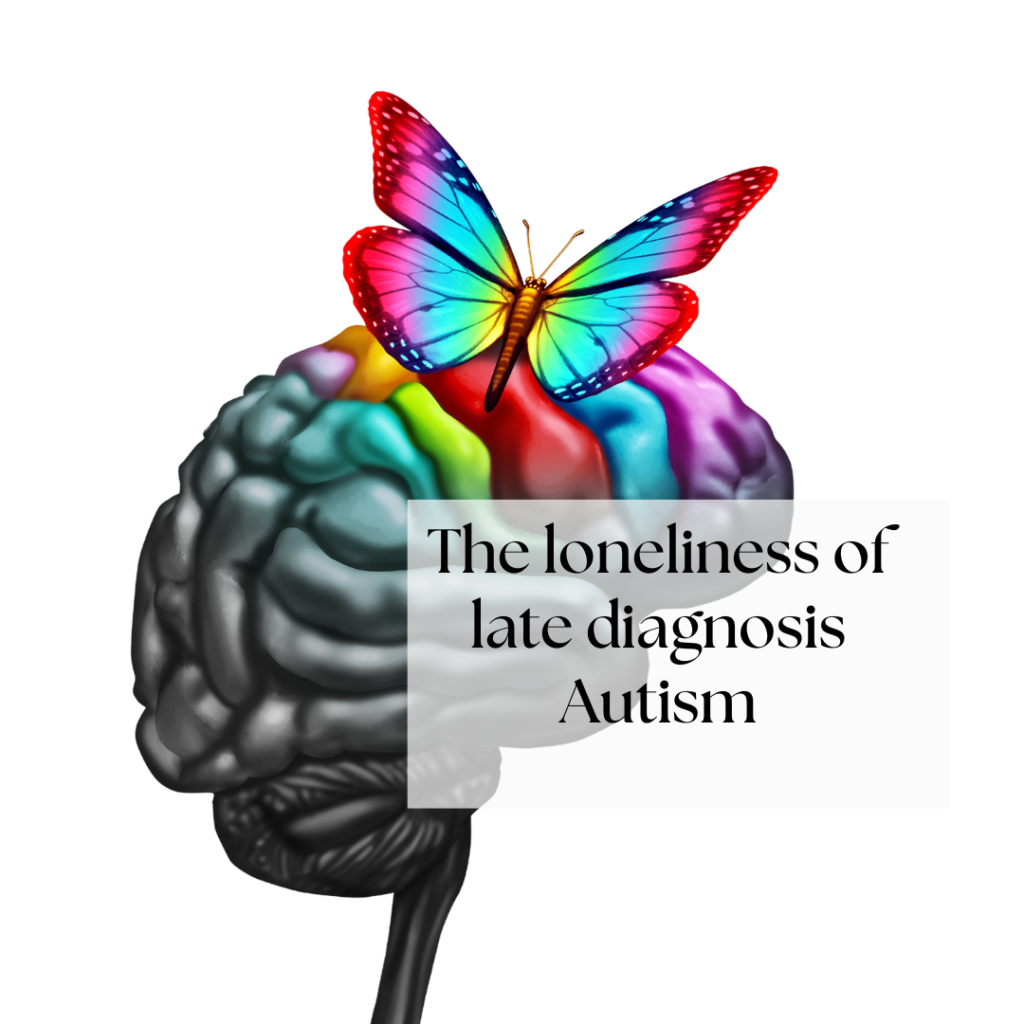Growing up with the felt sense of not belonging is loney. Working really hard to mimic your peers, and feeling unaccepted is unbearable. Being forced to go to church every week and feeling overwhelmed by the adults speaking in tongues, feels like your brain is melting. Hearing over and over again, you’re just a shy girl, and reality is the world’s noise is scary, and the sensations inside even scarier .You learn later, your nervous system was dysregulated. The progression of isolation does not get easy, and you find ways to be in your own world. You find ways to escape and lose large chucks and time, and it shows in your report card. You wonder at times why it is so hard to connect with others, and others to connect with you. And you find your way back to your inner world, and notice people a little less over time. Time to time, you might notice the pressure of not meeting certain milestones and panic into mimicking, and feeling the pain of engaging in a very loud world.
You become an adult, and you figure out adult things by trial and error in very expensive ways, and you make it your research project on how to be “normal”. As you study normacy, your mood declines, and depression appears. The doctors see you, and all he can see is depression. The doctor focuses on your flat affect and your perception of the world, and never asks how you experience your hurt. You try medication, and the medication does nothing but worsen your symptoms, and you feel even more like a failure at this “normacy thing”. And you go back into your inner world, and your body becomes more and more distant. Some stimuli like light, noise, and texture feels violent, and if you can, you find ways to avoid all of it. The distance from your body is risky at times, and looks like a lack of self-care to outsiders. At the same time, your body becomes the best detective at noticing everything, does that make sense?
Back to this inner world, you create a world which is safe and sound inside, and feel a sense of peace, and rage towards anyone who interrupts your peace. You gravitate towards rhythm for comfort, and play the same songs over and over again. You might read the same books on repeat, and new books feel too hard to read.
As you are watching the same movies, nothing else exist. As you notice the peace of your inner world, you feel less lonely, and start to resent having work. It is in your interactions with most people you notice your mood swings from depression and anxiety so quickly.
You decide to try this therapy thing, and it feels awkward, the therapist is asking you questions you don’t know the answer to, and your tears come hard and fast. You might try a few therapists until you find one who is a little like you. A little awkward like you; a little off beat; and attune to your speed and brilliance. You notice over time you are not in therapy to fix the impact of living in a neurotypical world, but you are in therapy to connect in safer ways.




